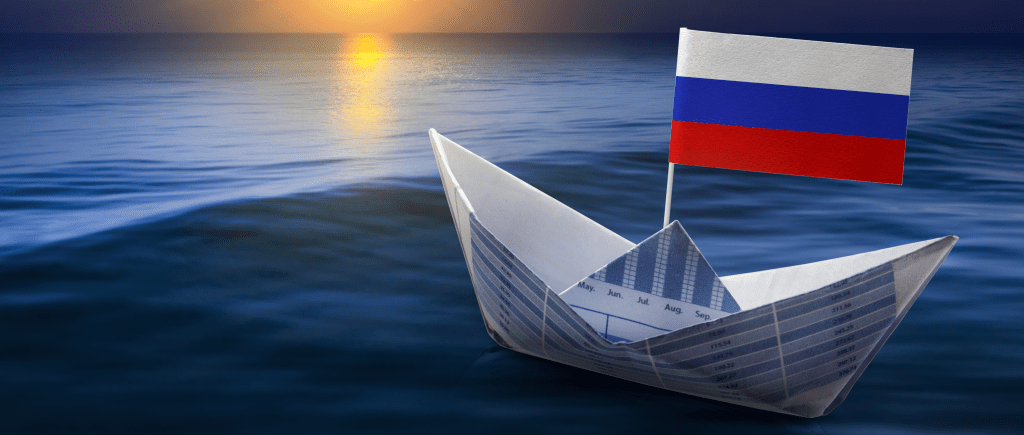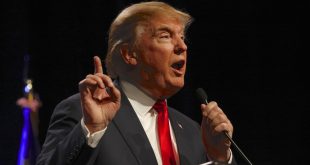Latest economic data published by Moscow do not track private-sector surveys that show a sharp contraction in Russian manufacturing.
The consequences of harsh economic sanctions against Russia are already being felt across the globe. Experts are busy explaining the significance of what has happened so far and how the conflict might transform the global economy.
The West has leveled waves of sanctions against the Russian economy. The crucial question is, are they working? This week, Russia released inconsistent data that showed the economy in March was either doing fine or just stepping water. Private-sector data has shown a sharp slowdown in Russia.
Russian inflation reached 17.6% as of April 22 and the central bank said on Friday that it expects annual inflation of between 18% and 23% this year, before slowing to between 5% and 7% in 2023 and returning to its 4% target in 2024.
The central bank implemented an emergency hike of the key rate from 9.5% to 20% in February, days after the invasion of Ukraine, in a bid to support its plunging ruble currency.
However, with the ruble now returning to pre-war levels, policymakers are turning their attention to recalibrating the economy in an effort to absorb the impact of punitive sanctions from international powers.
The Central Bank of Russia cut key interest rate to 14% from 17% as it looks to mitigate the impact of international economic sanctions. In the aftermath of Russia’s invasion of Ukraine and the ensuing unprecedented Western sanctions, the central bank is juggling a sharply shrinking economy and skyrocketing inflation. Economists expect a double-digit contraction for the economy, and inflation in excess of 20% in 2022.
“The external environment for the Russian economy remains challenging and significantly constrains economic activity. With price and financial stability risks no longer on the rise, conditions have allowed for the key rate reduction,” the central bank said in a statement Friday.
“Recent weekly data indicate a slowdown in current price growth rates on the back of a strengthening of the ruble and a cooling of consumer activity”.
The bank also said its inflation outlook is set to be impacted by the future of its imports and exports, as it looks to navigate the stinging sanctions, along with future fiscal policy decisions. It added that it will “take into the account the need for a structural transformation of the economy and will ensure a return of inflation to target in 2024”.
The CBR estimates that economic activity began to decline in March, as sanctions began to take effect, with high-frequency data indicating a slide in consumer and business activity.
“The decline in imports due to the introduction of external trade and financial restrictions is outstripping the decline in exports,” the CBR statement said.
“Despite the gradual change in the country and commodity structure of exports and imports as new suppliers and sales markets emerge, businesses are experiencing considerable difficulties in production and logistics”.
Although medium-term inflationary risks have decreased slightly, the CBR added, there are still considerable risks associated with any further escalation of external trade and financial restrictions that may be imposed on Russia by Western powers.
“The decline in the potential of Russia’s economy driven by restrictions may turn out to be more pronounced than the baseline scenario assumes,” it said.
“Over a short-term horizon, the effect of proinflationary factors is likely to be accentuated by high and unanchored inflation expectations”.
The central bank added that there is room for further easing this year if inflation risks continue to fall, however. Governor Elvira Nabiullina has previously stated that the CBR “will not seek to return inflation to target at any cost,” indicating that policymakers are willing to accept hotter inflation while focusing on restructuring the economy in the face of sanctions.
There is a sign that the CBR is putting less emphasis on inflation targeting as the center of its policy framework, but it is clear that the central bank is thinking about how the economy will adapt to a new growth model and that it should not keep interest rates too restrictive it if hinders this transition. Further interest rate cuts toward 10% by the end of the year now look potential.

 Noor Trends News, Technical Analysis, Educational Tools and Recommendations
Noor Trends News, Technical Analysis, Educational Tools and Recommendations




